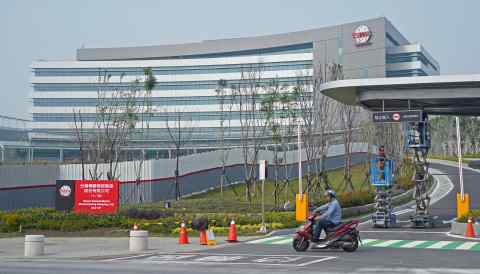TAIPEI -- Most high-speed trains have not stopped in Wuhan since Chinese authorities locked down the city on Jan. 23, in an attempt to control the outbreak of the novel coronavirus that originated there. Most, but not all. Some have kept special reserved carriages, occupied by experts heading into the middle of the quarantine zone -- not to its clinics or hospitals, but to Yangtze Memory Technologies, China's most high-profile memory chip project.
"You have to present special permits from both local and central governments, and medical proof that you are healthy when you board the train. You will then be arranged in a special carriage, along with other people who are also returning to work in strategic industries such as semiconductors," a person briefed on the process told the Nikkei Asian Review.









